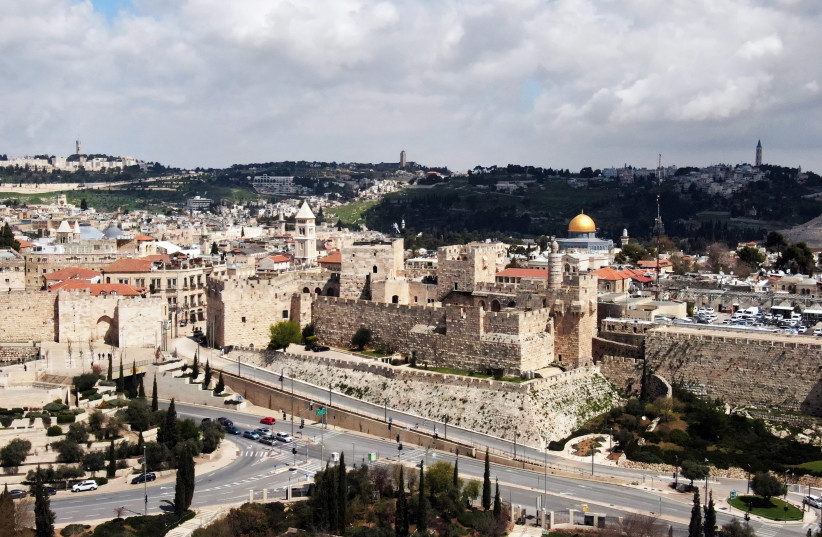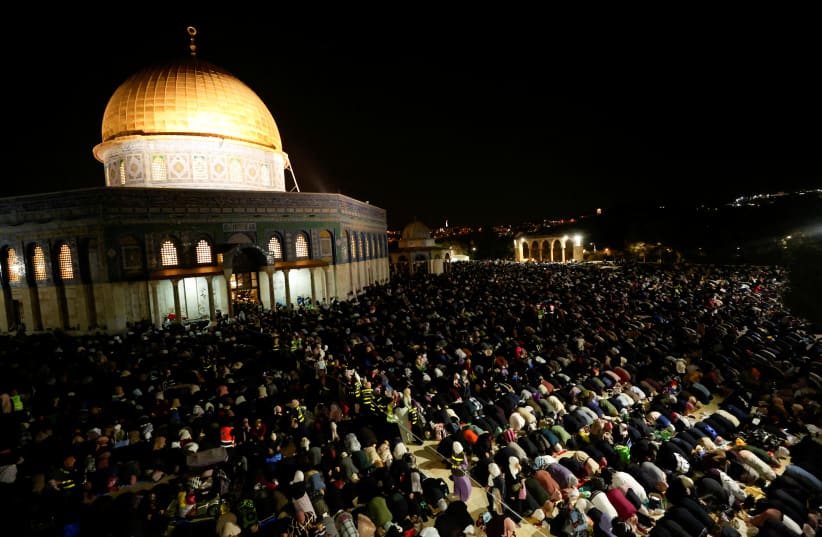Australia’s policy towards Palestinian hopes for a capital in Jerusalem appeared to remain intact on Wednesday, a day after it reversed its recognition of western Jerusalem as Israel’s capital.
“In December 2018, Australia acknowledged the aspirations of the Palestinian people for a future state with its capital in East Jerusalem,” the Australian Department of Foreign Affairs and Trade (DFAT) website read after it announced that it was reversing its December 2018 policy change pertaining to Israel.
DFAT also deleted calls for democracy and good governance by the Palestinian Authority from its website, The Sydney Morning Herald reported.
What happened with Australia and Jerusalem?
Earlier this week, Australia’s Foreign Minister Penny Wong denied that the excision of Australia’s recognition of western Jerusalem as Israel’s capital from the DFAT website indicated a policy change, only to say the opposite the following day without warning.
“Jerusalem is a final status issue that should be resolved as part of any peace negotiations…This reverses the [former prime minister Scott] Morrison Government’s recognition of West Jerusalem as the capital of Israel,” Wong stated.
“Jerusalem is a final status issue that should be resolved as part of any peace negotiations…This reverses the [former prime minister Scott] Morrison Government’s recognition of West Jerusalem as the capital of Israel.”
Australian Foreign Minister Penny Wong

Wong, however, said the decision "recommits Australia to international efforts in the responsible pursuit of progress towards a just and enduring two-state solution.”
The recognition of Jerusalem by the previous prime minister, Scott Morrison, in 2018, "put Australia out of step with the majority of the international community,” Wong said. “I regret that Mr Morrison’s decision to play politics resulted in Australia’s shifting position, and the distress these shifts have caused to many people in the Australian community who care deeply about this issue.”
Wong and DFAT had also denied a change in relation to Jerusalem in private conversations with Israeli officials and Australian Jewish organizations, and did not consult or warn them before the reversal, which took place while Diaspora Jews celebrated the holiday of Simhat Torah.
Australian Prime Minister Anthony Albanese defended the flip-flop in an interview with ABC Radio, saying that "of course some things can always be done better, but the truth is we have been very clear about what our position was.”
Albanese's Labor Party platform included reversing the previous government's decision about Jerusalem, as well as recognition of a Palestinian state. After the first happened without any discussion with stakeholders, Israeli officials and Jewish organizations expressed concerns that the second would happen in the same way.
Israeli and Jewish reactions to Australia's Jerusalem move
Prime Minister Yair Lapid, who also serves as foreign minister, called the decision "a hasty response to an incorrect report in the media," and expressed "hope that the Australian government manages other matters more seriously and professionally."
"Jerusalem is the eternal and united capital of Israel and nothing will change that," Lapid added.
"Jerusalem is the eternal and united capital of Israel and nothing will change that."
Israeli Prime Minister Yair Lapid
The Israeli Foreign Ministry summoned Australian Ambassador to Israel Paul Griffiths to Jerusalem on Tuesday for a reprimand following Canberra's zigzag.
Foreign Ministry Political Director Aliza Bin Noun told Griffiths the reversal was "a miserable decision that ignores the deep and eternal connection between Israel and its historic capital and that goes against the good relations between Israel and Australia."
Bin Noun also protested the fact that the decision came during the holidays of Sukkot and Simhat Torah, when the Jewish people celebrate their special connection to Jerusalem. Many Sukkot traditions relate to the Temples that stood in the capital.
The capital of Israel is all of Jerusalem, not just the western part of the city, though that is where the Knesset, Supreme Court and several government ministries are located.
After the US recognized Jerusalem as Israel’s capital in 2017 and opened an embassy there, Guatemala, Honduras and Kosovo followed suit, and several other countries said they would do the same. Until this week, Australia took the same route as Russia, which recognized western Jerusalem as the capital but did not move its embassy from Tel Aviv.
